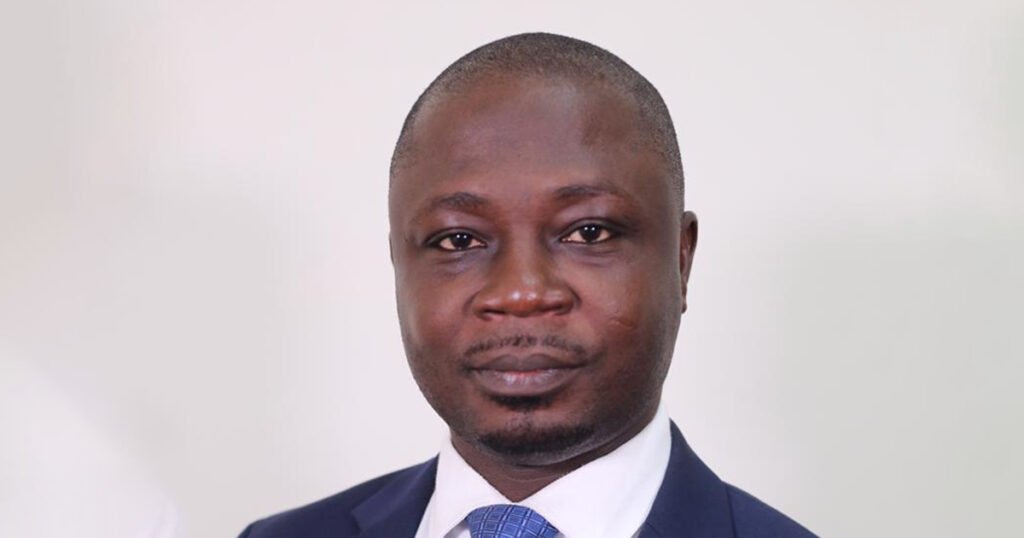As Ghana celebrates a momentous milestone, which fell on July 19, 2025 – the 60th anniversary of the Ghana Cedi as its sole legal tender, the Ghana Association of Savings and Loans Companies (GHASALC) with its 26 member institutions extend heartfelt congratulations to the nation and the Bank of Ghana. Six decades ago, the Cedi emerged as a powerful emblem of our burgeoning economic sovereignty and a cornerstone of our national development. The Cedi’s journey reflects Ghana’s remarkable resilience, innovation, and steadfast commitment to achieving economic stability.
This narrative reflects on the Cedi’s historical trajectory, its regulatory frameworks, its impact on the economy of Ghana, and future prospects—particularly in digital finance—that will shape the coming decade.
A Journey of Resilience: The Cedi’s Historical Tapestry
The introduction of the Ghana Cedi on July 19, 1965, marked a pivotal moment, replacing the Ghanaian Pound and firmly asserting our monetary independence. This was not merely a change in nomenclature but a bold declaration of our economic self-determination. From its initial issuance, the Cedi has undergone several significant transformations in form and policy direction, adapting to the evolving demands of a dynamic economy. These reforms, including re-denominations and the introduction of new denominations, underscore Ghana’s tenacity and innovation in navigating complex economic landscapes.
At the heart of the Cedi’s enduring legitimacy and stability lies the constitutional mandate of the Bank of Ghana. Article 183 of the 1992 Constitution unequivocally establishes the Bank of Ghana as the Central Bank and the sole authority to issue the currency of Ghana. This singular right, further enshrined in the Bank of Ghana Act, 2002 (Act 612) as amended, ensures a centralized and controlled issuance and redemption of notes and coins, providing a critical foundation for monetary integrity.
The Guardian of Value: Bank of Ghana’s Regulatory Framework
The Bank of Ghana (BoG) has meticulously crafted a robust regulatory framework to safeguard the value and integrity of the Cedi and to ensure the stability of the broader financial sector. Its primary objective, as stipulated in the Bank of Ghana Act, 2002 (Act 612), is to maintain stability in the general level of prices. To achieve this, the BoG is empowered to formulate and implement monetary policy, promote currency value stabilisation, and institute measures that positively impact the balance of payments, public finances, and national economic development. This has been done through prudent monetary policies, foreign exchange controls, and financial sector reforms.
Economic Footprint: Triumphs and Trials
Over the past six decades, the Ghana Cedi has been an indispensable tool in the nation’s economic progress, facilitating trade, investment, and financial transactions. Its stability, though often challenged, has underpinned periods of significant growth and development. The Cedi’s journey has been a testament to Ghana’s economic dynamism, reflecting its ability to absorb shocks and rebound.
However, this journey has not been without its struggles. Periods of high inflation and significant depreciation have tested the nation’s resolve. Factors such as global economic shocks, domestic fiscal imbalances, and speculative activities have at times exerted immense pressure on the Cedi. For instance, the sharp depreciation experienced towards the end of 2022 highlighted the currency’s vulnerability. Yet, recent reports from early 2025 indicate encouraging signs of stabilisation and appreciation against major international currencies. Ghana’s ongoing engagement with the IMF’s Extended Credit Facility program, and the successful debt restructuring efforts, and fiscal discipline have also bolstered market confidence and foreign exchange liquidity. The Bank of Ghana’s commitment to increasing interest rates and eliminating monetary financing of the budget has been instrumental in these recent gains, showcasing a determined effort to bring inflation down and stabilise the currency.

The Savings and Loans Sector: Partners in Progress
As the representative body for all 26 Savings and Loans companies in Ghana, GHASALC recognises its vital role in the Cedi’s ecosystem. Our sector operates at the heart of financial inclusion, extending essential financial services to individuals, small and medium-sized enterprises (SMEs), and communities that might otherwise be underserved by traditional commercial banks. By mobilising domestic savings and providing accessible credit, Savings and Loans companies directly contribute to economic activity at the grassroots level, fostering entrepreneurship and job creation.
Our operations are meticulously guided by the regulatory framework established by the Bank of Ghana, ensuring sound corporate governance (as highlighted by responsibilities of directors under Act 930 and the Corporate Governance Directive 2018) and adherence to prudential norms. We maintain stringent accounting records in compliance with the Companies Act, International Financial Reporting Standards, and BoG requirements. The stability of the Cedi is paramount to our sector’s health, as it directly impacts our clients’ purchasing power, investment decisions, and loan repayment capacities. We are committed to upholding the value of the Cedi through responsible lending, efficient resource allocation, and robust internal controls.
Embracing the Digital Frontier: The Cedi’s Future
The future of currency management globally is undeniably digital, and the Ghana Cedi is poised to embrace this transformation. The Bank of Ghana’s commitment to launching the e-Cedi, the country’s Central Bank Digital Currency (CBDC), is a forward-looking step towards enhancing financial inclusion and promoting a more digitalised economy. The successful pilot phase of the e-Cedi, demonstrating its offline operational capacity, particularly in remote areas, highlights its potential to revolutionise transactions and bring more Ghanaians into the formal financial system.
From the perspective of the Savings and Loans sector, the integration of e-currency and other digital assets presents immense opportunities. It promises more efficient, secure, and cost-effective transactions, reducing reliance on physical cash and mitigating risks associated with cash handling. We anticipate that the e-Cedi will foster greater interoperability within the financial ecosystem, enabling seamless transfers and payments. GHASALC members are ready to adapt our services and infrastructure to facilitate the adoption of the e-Cedi, ensuring that our customers benefit from these technological advancements while maintaining the highest standards of security and consumer protection. The growing acceptance of mobile money demonstrates Ghana’s readiness for digital currency.
Charting a Course for Tomorrow: Recommendations for the Bank of Ghana
To ensure the continued stability and enhanced relevance of the Ghana Cedi amidst evolving global financial trends, GHASALC respectfully offers the following recommendations for the Bank of Ghana’s consideration:
Sustained Fiscal Discipline: Continue to advocate for and collaborate with the government on prudent fiscal management. Persistent government arrears and uncontrolled expenditure can undermine monetary policy efforts and put undue pressure on the Cedi. A sustained commitment to fiscal consolidation and discipline is crucial for long-term currency stability.
Adaptive Monetary Policy: Maintain an agile monetary policy framework that can swiftly respond to both domestic and external shocks. This includes a clear inflation-targeting strategy and judicious use of policy tools to manage liquidity and interest rates, thereby promoting price stability and confidence in the Cedi.
Robust Digital Infrastructure and Cybersecurity: As the e-Cedi rolls out, continue to prioritise investment in a resilient and secure digital infrastructure. Robust cybersecurity measures are paramount to prevent fraud and ensure public trust in digital currency. Continuous public education campaigns on digital financial literacy and fraud prevention will also be essential.
Promoting Export Diversification: Work closely with relevant government agencies to diversify Ghana’s export base beyond traditional commodities. This may include developing and building local champions of financial institutions, capable of exporting their services to other jurisdictions, through appropriate policy support. A broader range of exports will provide more stable and diversified foreign exchange inflows, reducing the Cedi’s vulnerability to global commodity price fluctuations.
Enhanced Stakeholder Collaboration: Continue and deepen engagement with key financial sector stakeholders, including GHASALC. Regular dialogue and collaboration ensure that regulatory policies are practical, inclusive, and responsive to the needs of the diverse financial landscape, from large commercial banks to community-focused Savings and Loans companies.
Regulatory Sandbox for Digital Assets: Continue to openly encourage the use of regulatory sandbox for emerging digital assets and innovative financial technologies beyond the e-Cedi. This would allow for controlled experimentation and the development of appropriate regulatory frameworks, fostering innovation while managing risks.
Data-Driven Policy Formulation: Leverage advanced data analytics and economic modelling to inform policy decisions. Real-time data on currency movements, inflation, and economic activity can enable more precise and timely interventions. The Savings and Loans companies stand ready to support this initiative.

Conclusion
As the Ghana Cedi commemorates its 60th anniversary, it stands not just as a medium of exchange but as a living testament to Ghana’s journey of independence, economic growth, and national pride. The Bank of Ghana’s dedicated stewardship, coupled with the unwavering commitment of financial institutions like those within GHASALC, has ensured its enduring relevance. Looking ahead, by embracing digital innovation and adhering to sound economic principles, we are confident that the Cedi will continue to be a pillar of progress, driving Ghana towards a future of sustained prosperity and enhanced financial inclusion for all.
Long Live the Ghana Cedi! Long Live Ghana!
The Ghana Association of Savings and Loans Companies (GHASALC) is the umbrella body representing all 26 licensed Savings and Loans companies in Ghana, committed to promoting financial inclusion and economic growth for all households, especially the Micro, Small, and Medium Enterprises (MSMEs).
By Tweneboah Kodua Boakye,
CEO, Ghana Association of Savings and Loans Companies (GHASALC).








